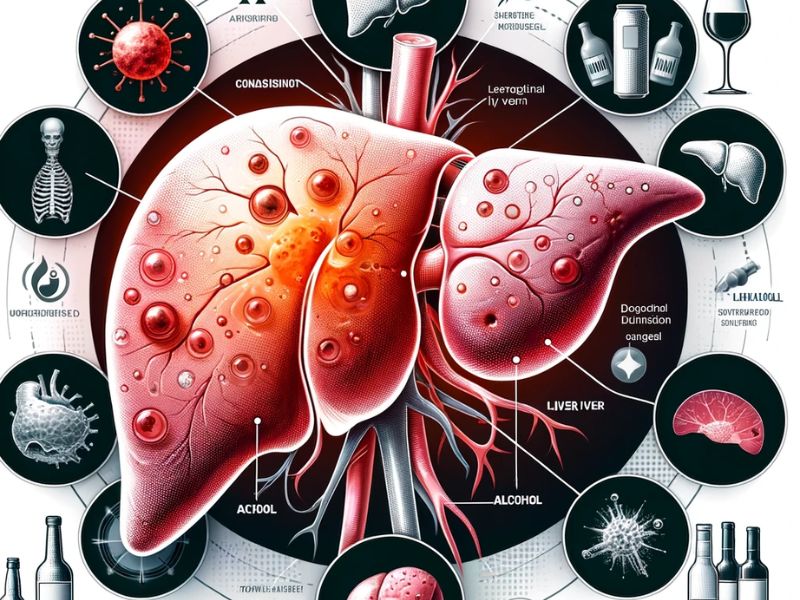
Silent enemy: alcohol and liver cancer
The growing threat of alcohol-related liver cancer
The link between alcohol and liver cancer
Alcohol consumption is closely linked to the development of liver cancer, one of the many forms of cancer caused by alcohol. Recent studies have highlighted how excessive alcohol consumption can lead to severe liver conditions, including cirrhosis, which significantly increases the risk of developing liver carcinoma. Alcohol damages the liver through complex mechanisms, including the alteration of gene expression and liver metabolism, which can lead to chronic inflammation and scarring of liver tissue.
Epidemiology and at-risk groups
Every year, over 800,000 people worldwide are diagnosed with liver cancer, with approximately 33,000 cases in the United States alone. Alcohol consumption doubles the risk of developing this disease. Alcohol abuse is a significant risk factor, and specific groups, such as men and individuals with a family history of alcohol abuse, are particularly vulnerable. Furthermore, alcohol-associated liver carcinoma is on the rise globally, with projections of further increases in the coming years.
Symptoms and prevention
Symptoms of liver cancer can vary but include liver pain, nausea, unexplained weight loss, feeling full after small meals, jaundice, and abdominal swelling. To prevent liver carcinoma, it is crucial to reduce or eliminate alcohol consumption, maintain a healthy body weight, and control other risk factors such as diabetes and hyperlipidemia. Primary prevention through the global reduction of alcohol consumption could have a significant impact on reducing the incidence of this disease.
Treatments and future prospects
Currently, therapeutic options for alcohol-related liver carcinoma include alcohol addiction treatment and surgery, among others. Research is ongoing to develop more effective treatments, including pharmacological therapy to reduce alcohol-induced liver damage. Recent studies suggest new therapeutic strategies, such as the inhibition of specific proteins involved in alcohol-induced liver damage.


